 Martin Kovan is an Australian writer of fiction, non-fiction and poetry, which in recent years has been published in major Australian literary journals, as well as in France, the U.K., U.S.A., India, Hong Kong, Thailand and the Czech Republic. He completed graduate English studies with the U.S. poet, Gary Snyder, at UC Davis. He is completing a PhD in academic ethics and philosophy, and has volunteered in humanitarian work in South East Asia.
Martin Kovan is an Australian writer of fiction, non-fiction and poetry, which in recent years has been published in major Australian literary journals, as well as in France, the U.K., U.S.A., India, Hong Kong, Thailand and the Czech Republic. He completed graduate English studies with the U.S. poet, Gary Snyder, at UC Davis. He is completing a PhD in academic ethics and philosophy, and has volunteered in humanitarian work in South East Asia.
The Aid Worker
Long lines of people stretch as far as the first palm-trees on the horizon. The trees bend to one side, as if under-nourished, or importuning the earth. You have fed and sustained us, our roots are in your soil, but we are wanting. We need more, earth. Can you offer it, have you more to spare? The aid-worker is employed with the ground crew, meeting those first come from over the border. She sees the beseeching trees, hovering at an incline over the vertical figures beneath, and knows the thought is an idle fancy, mingling between their hazy contours and her own mind. Trees don’t make appeals to the earth; trees are just trees, growing, giving forth flower and fruit, diminishing, then dying.
Like the people themselves, she thinks: the burgeoning, the plenitude, the slow demise. She can see the long lines of figures, often in single file, traversing the raised, dirt paths between paddies. Smooth planes of low-lying water are lit blankly by the morning sun: sheets of electric light that flash, off and on, but convey no clear message. It has been raining for days; now the sky is a sheer blue above them.
The people are diminished, and many are infirm. Even the newborns, clinging to the girls’ arms, have begun the journey from a place of deprivation. The aid-worker’s job is to ameliorate the worst of the suffering, as much as it is in her power to. And her power is not something to be dismissed; she can even offer a little more than the earth can. Where the refugees have come from, they had water, pigs, flour and small crops. They enjoyed some natural, earth-given bounty. But it wasn’t enough, once the killing started. They needed more, then, than nature can provide.
They need the provision of food, and formula for the newborns, ointments and antiseptics the young mothers can’t find in the villages, even the well-stocked and well-situated ones. The people need medical aid and supplies, but still more, the specialized attention which knows how to apply the aid in effective ways. A certain kind of attention, it would seem, that they have not cultivated themselves. For they are poor, and have grown used to being deprived of things most others take for granted.
So that when the aid-worker meets the first of the young women, many of them carrying babies, who after descending the mountain ranges of the border have toiled across the vast flat and watered plains to her encampment in the green-zone, she is made aware, not for the first time, that she is the specialist, with a specialist’s skills, tending to people who themselves lack them. The girls are bent under loads, weighed down with babies or young children on their hips. Many of them are too young to be mothers; they carry nephews and nieces, the children of elder siblings, women who, the aid-worker knows, have died of unnatural causes.
The aid-worker notices, as she touches the children for the first time, relieving the girls of their various burdens, how beautiful the women are. Their strong, limpid eyes glow from smooth-skinned faces—weary, worn, still warm with the exertion of days and weeks on the mountain-paths. The aid-worker is neutral beside them, even nondescript: her pale limbs are concealed by synthetic fabrics to protect against insects and the fierce tropical sun, gloves and sometimes disinfectant on her hands, to ward off malign microscopic intrusions.
In her dun clothing, she feels diminished next to these exhausted, exquisite women, loosely covered in bright-coloured clothing. Their arms and wrists are finely-boned, adorned with childish jewellery, their smooth, dark feet often bare. The breasts of those bearing babies are also left bare, given to the open air. The women have no self-consciousness; they might not care if they did.
But this is how things are on the border: rich with contradiction, and the aid-worker has grown used to it.
Later that night, after the young women, and those who have followed them, have been treated and given shelter, fed and properly clothed, the aid-worker goes to the common area outside a tent-enclosure. There she meets with some of her colleagues: doctors and nutritionists, nurses and anaesthetists. All are tired but satisfied with the progress of the day. On the margins of the compound the palms bend and sway lightly in a mild breeze, hoopoes call from the adjacent stand of forest where, some have said, wild animals can sometimes be seen—elephants and even panthers.
‘So long as it’s not guerrillas, from over the border,’ one of them says, a man’s voice, jocular in the night. No-one can drink here, but many smoke, especially the European doctors, who might pride themselves on their immunity from the usual weaknesses. They are as if the gods of the place, who have come in from on high, and wield benign power over their domain. ‘I have heard all kinds of noises, in the night. Unearthly, incredible things,’ the same man says.
A voice says, ‘It’s the wild pigs, routing for food’.
Another opines, ‘Spirit-guardians of the place, disturbed in their rest.’
‘Don’t be silly,’ says a woman with a brassy voice. ‘It’s sex in the jungle. The call of the wild.’
‘Rhea the realist,’ the man says. ‘Always the basic needs with Rhea.’
‘And so?’ Rhea asks, lighting her own cigarette. ‘That’s our job here, isn’t it, to find the most realistic solutions?’
‘Yes,’ he replies. ‘You’re right. We’re the opposites of dreamers. We’re guardians of earthly sleep who allow the others to sleep in peace. Without us, they’ll come to harm in the night, and die.’
Birds cachinnate in the tree-tops; from deeper in the scrub surrounding, there are sounds of movement.
‘That’s putting it a bit archly, isn’t it?’ says a younger voice, a godling, his English still inflected with ivied walls, a consciousness of its own facility. ‘We’re only human,’ he says. ‘We need to sleep as well, you know. Speaking of which.’
He gets up and stretches his legs, as if to retire.
‘Wait, my young friend, not so soon. Let me ask you. We need to hear your opinion.’ It is the first man, with his garrulous, deep voice.
‘Oh, really?’
‘You have an expertise we older ones seem to lack.’
‘What would that be, great Hector?’ he playfully replies. His tone is ironic in a way apt to be misunderstood.
‘So, is that how well you think of me?’
The younger man laughs, and stretches long limbs, looking up at the black of the sky, dusted with constellations. ‘I was just poking fun. Probably not the wisest thing to do with the greyback of the pack, is it?’
‘Probably not, Achilles. It might look like you’re trying to diminish my authority.’
‘You could imagine that, if you chose to. It doesn’t really matter, though, does it?’
‘What does matter, in your view?’ Rhea says, blowing out plumes of smoke. The group sit otherwise in silence on the border, as if awaiting a tribunal. The people who have come to them from the other place sleep now, it seems peacefully, under plastic roofs and between hessian walls. The rain has stopped falling, though it might start again tomorrow.
‘What I mean,’ Achilles says, ‘is that if we are merely serving our allotted roles, then it’s not up to us, is it? To make the decisions, to call the shots? Someone else is doing all that.’
‘Oh, God,’ Rhea murmurs. ‘No politics, please. It’s too late in the day.’
The older man speaks again, interested now. ‘As if we were just—what? Puppets?’ Hector says, and makes a snorting sound. ‘You really are undermining my authority now!’ he says again, coughing on his cigarette.
‘Well, maybe we are. You just called me Achilles, after all. But my name is Tom.’
‘I’m sorry, Tom. Achilles seems to suit you better. I don’t know why.’
‘Exactly—I don’t know why I said it. Maybe someone else made me do it. I don’t know, I’m confused. I’m sorry, I have to sleep. Good night.’
‘And your advice, you’ll deprive us of that?’
There is an uncomfortable silence while those who have remained wait for his answer. But none is forthcoming. Tom, or Achilles, lifts his hand weakly to them, before departing the company.
***
The next day there is, as there always is, a lot to do. It is raining, and many of the lower-lying tents are inundated. Many of the people are sick, with flu and infections. The eyes of many of the older ones are inflamed with filmy sores. The children’s noses run, and because the people spit phlegm everywhere they go, illness moves fast. Some of those who have been more badly injured in crossing the mountains, who have met with mines, or whose wounds are too far advanced, must have limbs amputated.
Many others can barely walk and require crutches or wheelchairs, in short supply out here in the field. The latrines, too, are overwhelmed with use; food that has been prepared in rudimentary kitchens gathers flies, and children eat it sloppily, with their hands. Some of the older ones refuse to eat at all, as if they distrust food that has not come from the village, because it is foreign to them.
It is while she is talking with the interpreter, in the course of processing some new arrivals, that the aid-worker hears of a rumour. It has begun making the rounds of some of the refugees. The interpreter tells her of some of the first arrivals from a remote, lesser-known village, visited with massacre early in the outbreak of violence. They have recognised one of the newcomers: a young man, with a wound on his brow, who is generally silent and receives food and treatment without thanks. The aid-worker has come across him, but she has thought he is still in shock, the witness to events a teenager should not see.
‘No,’ the interpreter says. ‘They say he was one of the group of attackers—young men armed with machetes and knives. They came before dawn and left only those here now still alive.’ He has infiltrated the refugees, the interpreter says, to escape retribution over the other side, and to disappear on this.
‘He has slightly lighter skin,’ he says, ‘not as dark as theirs. He’s probably a half-caste.’
The words in the interpreter’s mouth are strangely of another time; he would probably have to describe himself as a half-caste as well, applying an old, foreign language to the people to whom he belongs, the once-colonised. But he has been away, in the West, and returned; he is one of a new class who are entitled to old words for ambiguous things.
‘They are fleeing,’ he says, ‘because they were never welcome.’ It is right that they should leave, he thinks, and return to the places they came from—just as the colonisers did. No-one likes having foreign interlopers on their native soil.
‘Have you spoken to him yourself?’ the aid-worker asks.
The interpreter shakes his head. ‘Not a good idea. If the others see me doing that, they’ll trust me less.’
‘Yes,’ she says. ‘But you’ll need to come with me, and report it. It will be confidential.’
In the afternoon, the aid-worker sees Tom, the young intern, working in the camp-area where the teenage refugee has been assigned. Tom tells her he’s seen nothing strange in the boy’s behaviour. ‘He sits quietly. Eats when he’s fed. Doesn’t talk to anyone.’
‘Some of them think he’s from the enemy side,’ she says. ‘Lured by the military…probably with favours. They think he’s a machete boy.’
‘He’s got the right kind of injury for that,’ Tom says. He’s cleaning hypodermic equipment, needles and syringes. ‘I treated him myself.’
‘Stay with him, Tom. Watch how he interacts. What the others say.’
‘OK. You’ll tell the chief, then?’
She nods. ‘Unless he’s heard already.’ The aid-worker leaves Tom alone with his equipment, and returns to the women who are under her charge. She tells the interpreter they might have to get the boy out of there at any moment.
‘Then I’ll have to go with him,’ he says. ‘There’s no-one else who can speak his language.’ Nor is there anyone who knows the people as well as he does.
‘What would they do?’ she asks him. ‘If they were able to?’
‘You don’t know?’ the interpreter says.
She doesn’t answer him. She’s spoken casually, as if they are discussing a revision of the roster. The women see him nod his head, and leave the aid-worker alone again. They wonder if the white woman and the dark man, almost as dark as they are, and so informal with each other, are in the privacy of their separate places secretly lovers. Where they come from, that would be reason enough for fear.
But under cover of darkness, where the staff gather to speak of the day’s events, such a thing seems more possible, and even the fear something to surmount. There is always escape, after all. The question of the teenage boy is broached, eventually, by Tom.
‘We ought to evacuate him, tomorrow,’ he says. ‘Anywhere but keep him in the camp.’ No-one speaks while the question hangs in the dense, humid air. It might rain again, that night; if it does, it might not stop for days.
The head of operations takes this in, calmly. He has begun, now, to smoke cigars; the aromatic smoke loops among the loose circle, sitting in a darkness filtered by the artificial light of lamps coming from nearby tent-enclosures. ‘I need my people here,’ he says. ‘We don’t have the resources to send people off on goose-chases.’
‘It’s a question of safety, not goose-chases,’ Tom says. ‘Can we afford that?’
‘You again. My friend Achilles. The humanitarian of high repute. No-one disagrees with you.’
‘I can go tonight, then.’
‘You can stay here, with everyone else.’
‘I’d prefer not to.’
Hector lifts his heavy eyebrows. He sighs. ‘We’ve been tasked to help these people, medically. That means all the people. It doesn’t matter where they’ve come from, or what they’ve done before. We’re not here to judge people for alleged crimes. We treat their bodies and their minds. We’re tasked to save their lives, not to spirit them to secret locations in the middle of the night. No-one knows who this boy is. It might be just a rumour. These people are half-crazed, in shock. They don’t know what they’re talking about. The boy with the machete wound will stay here. I’ll see to him myself. No-one will dare to touch him then.’
‘You don’t know what you are talking about, Hector,’ the young intern says. ‘We train their armies. We sell them the guns.’
‘And so? What’s that to us? We can’t decide how they use them. We’re only here to keep them alive, if we can.’
‘If he stays in the camp he’ll be killed within days.’
‘Who asked you for your advice? Did anyone?’
‘Actually, they did. You did. But I’m just an intern. My job is to learn from you.’
‘Well, in that case,’ Hector says, ‘I have something to teach. If I hear more disrespect from you I’ll throw you across that border just over there, and leave you to the hospitality of that guerrilla army you probably sympathise with. You probably imagine they are your friends in the moral fight, because you are a nice, intelligent boy. But they’ll put you in a cage, feed you rotten birds and mice, and make you shit in your clothes. Do you understand? Then they’ll call me on their mobile-phones and demand I give them half a million bucks from our overflowing coffers, before sending you back to me. And I won’t hesitate—after hesitating just a little. Because I’ll ask myself, is clever Achilles worth that much? There are plenty like you, from your fancy colleges, that I can pick out of the pool any time, and maybe Achilles is really dispensable, maybe his privilege means nothing, and he is only a little scrap—a scrap of pretentious crap. Do you like the sound of that, Achilles, or Tom, or whoever the fuck you are? Do you like that—how literary it is? Now go and sleep your precious sleep of the intern, knowing as you always have that there are those who are more powerful than you who can be trusted to protect you and take care of you, should you come to harm from the wild animals of the night.’
Hector puffs furiously on his cigar and he really could be blowing hurricanes of wrath across the millennial heavens. ‘I’ll see you tomorrow, young man. You’ll come to my quarters, at a time to be decided. For now, you are suspended from further duties. Now get lost, get out of here.’ He raises himself from his camp-chair, and throws the half-smoked cigar into the murky edge of the enclosure. But as soon as the younger man is gone, he smiles desperately. ‘Well, that was a bit of fun, wasn’t it? You all enjoyed that, didn’t you?’ Hector’s voice trembles, he is embarrassed by his outburst, and looks like he might break into tears. ‘A good thing it’s all play-acting, as he says,’ he adds.
‘I think it’s time you took a rest,’ Rhea says.
‘I do too, my dear,’ he says, relieved at his rescue. ‘What do you have in mind?’
‘Why don’t you come to my tent, and I’ll let you know there?’
An expansive, celestial smile traverses his broad Olympian features. ‘For real?’ he says, his eyes dilating with regained power.
‘As real as it gets,’ she says, stubbing out her cigarette.
In the morning, the interpreter visits the aid-worker again. ‘I was with the villagers just now,’ he says. ‘More than one of them remember him. It’s no mystery to them. He’s probably an orphan. Should I speak to him?’
‘Are they talking with any others? People from the other villages?’
‘Not as far as I can tell. But they will, when things get restless. As they’re bound to do.’
‘What do you mean?’
‘They always do, don’t they?’ he smiles. ‘Why don’t we go to lunch,’ he adds. ‘You’ve been working hard enough.’
But the aid-worker decides to stay in, and write her own account of events. In a lined notebook she writes of the cloying air, the mosquitoes, the sense of moist inevitability, seeping into everything. She is waiting for the rain to break, again, like a new mother with her waters. There is water everywhere, in her picture of things.
The picture includes the interpreter, the machete boy, and Tom, and the portentous leader of their crew, like figures in a film. But not herself, she stands outside it: to herself, she is just a worker, an aid-worker, in a place of need, and of privation. Everyone needs her; but no-one really needs her. Most of the people there barely remember, or even know, her name. Even in a fiction she would probably go nameless.
Like the interpreter, and the machete boy, who are perhaps her confreres. If she ran away with the interpreter, she wonders, would they set up a life together, somewhere, with the machete boy as an adopted son? There’s no reason why not, she thinks, it would be an acceptable outcome.
In her world, however, it would be a make-believe. What would she say to the suspected killer, a teenager with blood on his hands, and whose language she doesn’t speak? Would he care what she has to say, any more than anyone else would?
When she goes on rounds of the different wards, she takes care not to look in on the boy. No attention should be drawn to him. She agrees with Tom, and would help him make the escape, if anyone asked. But no-one asks her what she thinks, not even the interpreter. They expect her to do her job, dimly, as befits her bland and mousy appearance. Like someone in a lab, or a primary school, or a factory, doing a dim and minor job that few others want to do. She decides to go and find the interpreter, and take him up on his offer of lunch.
The interpreter is meeting with the teenager in his corner of the camp. Nor can she find Tom, who has been taken off work and is confined to his camp quarters. It is only after nightfall, when the electric lamps begin to come on, and candles are burning among the bivouacs of the refugees, many of whom prefer to sleep outside, that she hears there has been a disturbance.
One of the women comes to her, still wearing the ragged clothes of her journey over the mountains. She points briefly to her chest and shakes her right hand in a fluid, dismissive motion: there is something wrong with the heart, hers or another’s the aid-worker can’t tell. The woman looks quickly back over her shoulder, and points towards the authorised area of camp administration and central quarters.
The aid-worker goes there and among the doctors’ inner circle meets Rhea, regally taking control of the crisis. She gathers that someone has died: the head of operations, the hero Hector, found dead in his bed. She is not alarmed by the news. No-one has seen anything, there is no evident injury, he might have had a heart-attack.
But she is not so sure. Why would a healthy man in his prime, smoking cigars with a flourish only the night before, suddenly die without any sign? Rhea suggests that the aid-worker return to work, a meeting will be convened later. Returning to her designated wards, she sees the interpreter rushing up to her. ‘I can’t find him anywhere. The boy. He’s gone.’
She takes hold of his arm. ‘The head is dead,’ she says.
The interpreter nods, still breathless. To him it seems a clear thing, to make the obvious inference.
‘But there’s no sign,’ she reminds him. ‘No blood, no wound, nothing even broken. No machete blows.’
‘People can be strangled,’ he says. His hair is awry and sweat beads on his face, as if he’s been running, wildly, in circles, like someone searching for the end of a labyrinth.
‘He was found in a deep repose.’ The words coming from her mouth are as if spoken by someone else, she is sure she has never used the word repose before, it seems completely alien to her.
***
When Tom has entered the head tent he is already well-armed and mentally prepared, it is not at any arranged hour, it is premeditated but spontaneous and the head of operations is still in his bed, waking from a nap, he is surprised in his domestic repose, an intruder in his sanctum, and the boy, the intern boy, like Achilles with his spear, coming in without warning as if to surprise him in his sleep, and Hector says, ‘Who do you think you are coming in like that?’
‘You called, and I had nothing else to do,’ Achilles tells him.
‘I am still in my bed,’ Hector says. ‘You have not been invited here.’
‘I believe I was. But you can stay there, it is better that way.’
‘Better for what? For whom?’
‘Better for you, and for all of us,’ Achilles repeats, his normally calm eyes adjusting to the weak light of the sunken place. ‘Not much of a place to die, Hector. You probably had better plans for yourself. Instead of rotting in an obscure grave, on the border of someone else’s civil war, none of your business after all, just here to save the sick and disenabled, the ones who can’t save themselves. The irony, doctor, is that you can’t save yourself either. No-one can save you, now. Don’t worry, it will be swift and almost without pain. The only pain will be in leaving. In leaving this place of privation. Returning to your abode of the gods.’
Achilles lifts the large syringe held down by his side and quickly plunges the needle into the chest of the other man, its full dose of hydromorphine discharged directly into the heart.
‘And there will be no mark to show,’ Achilles says. ‘Maybe just a little blood, but I’ll clean it up. Barely a surface wound.’ Hector lies still in the bed, a large smile gradually transforming his face, that could come from a final wound of pride.
‘You are good, Tom. I could trust you after all, to do the right thing. Now go back to work, and leave me.’
Achilles looks down at him for a moment longer.
‘One day you’ll be where I am now,’ the doctor says. ‘And you’ll know that it’s right, like this.’ Achilles takes a last look at the doctor before leaving his sunken tent. The sun is high again, outside; the paddies stretch away in every direction. He can hear the noise of people, preparing food, moving from place to place. There are people talking, with urgency, engaged in life. There are still all the others to save, and those not to. Only a god can know how to choose between them, he thinks.
But Tom, or Achilles, as he has said, is only a kind of functionary, so he could not be expected to know. As he moves towards the people, he sees the aid-worker coming towards him. ‘I need you to do something for me,’ he says to her. ‘Can you help?’
The aid-worker nods, looking past him.
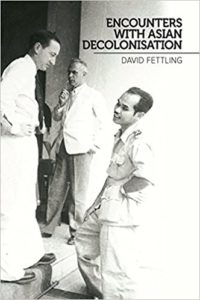 Encounters with Asian Decolonisation
Encounters with Asian Decolonisation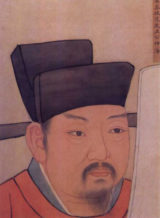 Fan Zhongyan (989-1052) was a Chinese statesman, writer and philosopher of the Song dynasty. A significant portion of his career was spent working on China’s defences along the North-western border, which inspired the theme of loneliness in his writings. His best-known poems contrasted his experience of solitude and homesickness with a sense of duty to his country and people.
Fan Zhongyan (989-1052) was a Chinese statesman, writer and philosopher of the Song dynasty. A significant portion of his career was spent working on China’s defences along the North-western border, which inspired the theme of loneliness in his writings. His best-known poems contrasted his experience of solitude and homesickness with a sense of duty to his country and people.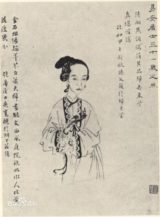 Li Qingzhao (1084-1151) lived during the Song dynasty and was considered one of the most accomplished woman poets in Chinese history. Many of her poems intimately reflect her experiences of love, loss, fear and uncertainty living in a war-torn China.
Li Qingzhao (1084-1151) lived during the Song dynasty and was considered one of the most accomplished woman poets in Chinese history. Many of her poems intimately reflect her experiences of love, loss, fear and uncertainty living in a war-torn China.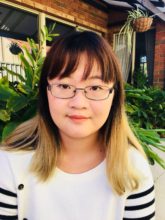 Yunhe Huang is a Chinese writer based in Australia. She has written poetry and prose in both Chinese and English, using a variety of genres from Song-dynasty
Yunhe Huang is a Chinese writer based in Australia. She has written poetry and prose in both Chinese and English, using a variety of genres from Song-dynasty  Wanling Liu (born 1989, China) completed her MA in Translation and Transcultural Communication at the University of Adelaide. She is a literary translator and teaches translating and interpreting in Adelaide. She has developed a passion for performance poetry and storytelling events and has won spoken word prizes with her poetry published in local anthologies.
Wanling Liu (born 1989, China) completed her MA in Translation and Transcultural Communication at the University of Adelaide. She is a literary translator and teaches translating and interpreting in Adelaide. She has developed a passion for performance poetry and storytelling events and has won spoken word prizes with her poetry published in local anthologies.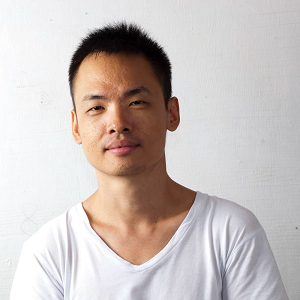
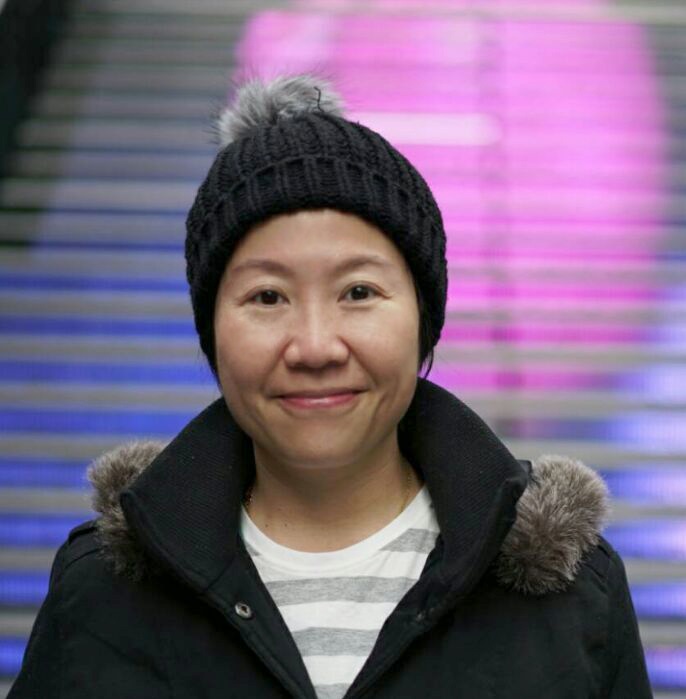
 Martin Kovan is an Australian writer of fiction, non-fiction and poetry, which in recent years has been published in major Australian literary journals, as well as in France, the U.K., U.S.A., India, Hong Kong, Thailand and the Czech Republic. He completed graduate English studies with the U.S. poet, Gary Snyder, at UC Davis. He is completing a PhD in academic ethics and philosophy, and has volunteered in humanitarian work in South East Asia.
Martin Kovan is an Australian writer of fiction, non-fiction and poetry, which in recent years has been published in major Australian literary journals, as well as in France, the U.K., U.S.A., India, Hong Kong, Thailand and the Czech Republic. He completed graduate English studies with the U.S. poet, Gary Snyder, at UC Davis. He is completing a PhD in academic ethics and philosophy, and has volunteered in humanitarian work in South East Asia.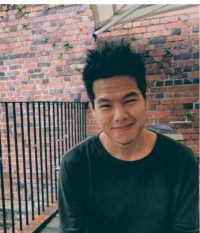 HC Hsu is author of the short story collection Love Is Sweeter (Lethe) and essay collection Middle of the Night (Deerbrook), which has been nominated for the Housatonic Award, CALA Award and Asian/Pacific American Award for Literature. Memoir competition winner and The Best American Essays nominee, he has written for Pif, Big Bridge, Iodine, nthposition, 100 Word Story, China Daily News, Epoch Times, Words Without Borders, and many others. He has served as interpreter for the US Congressional-Executive Commission on China, and his translation of 2010 Nobel Peace Prize laureate Liu Xiaobo’s biography Steel Gate to Freedom was published by Rowman & Littlefield in 2015.
HC Hsu is author of the short story collection Love Is Sweeter (Lethe) and essay collection Middle of the Night (Deerbrook), which has been nominated for the Housatonic Award, CALA Award and Asian/Pacific American Award for Literature. Memoir competition winner and The Best American Essays nominee, he has written for Pif, Big Bridge, Iodine, nthposition, 100 Word Story, China Daily News, Epoch Times, Words Without Borders, and many others. He has served as interpreter for the US Congressional-Executive Commission on China, and his translation of 2010 Nobel Peace Prize laureate Liu Xiaobo’s biography Steel Gate to Freedom was published by Rowman & Littlefield in 2015.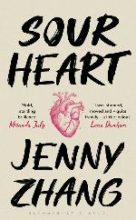 Sour Heart
Sour Heart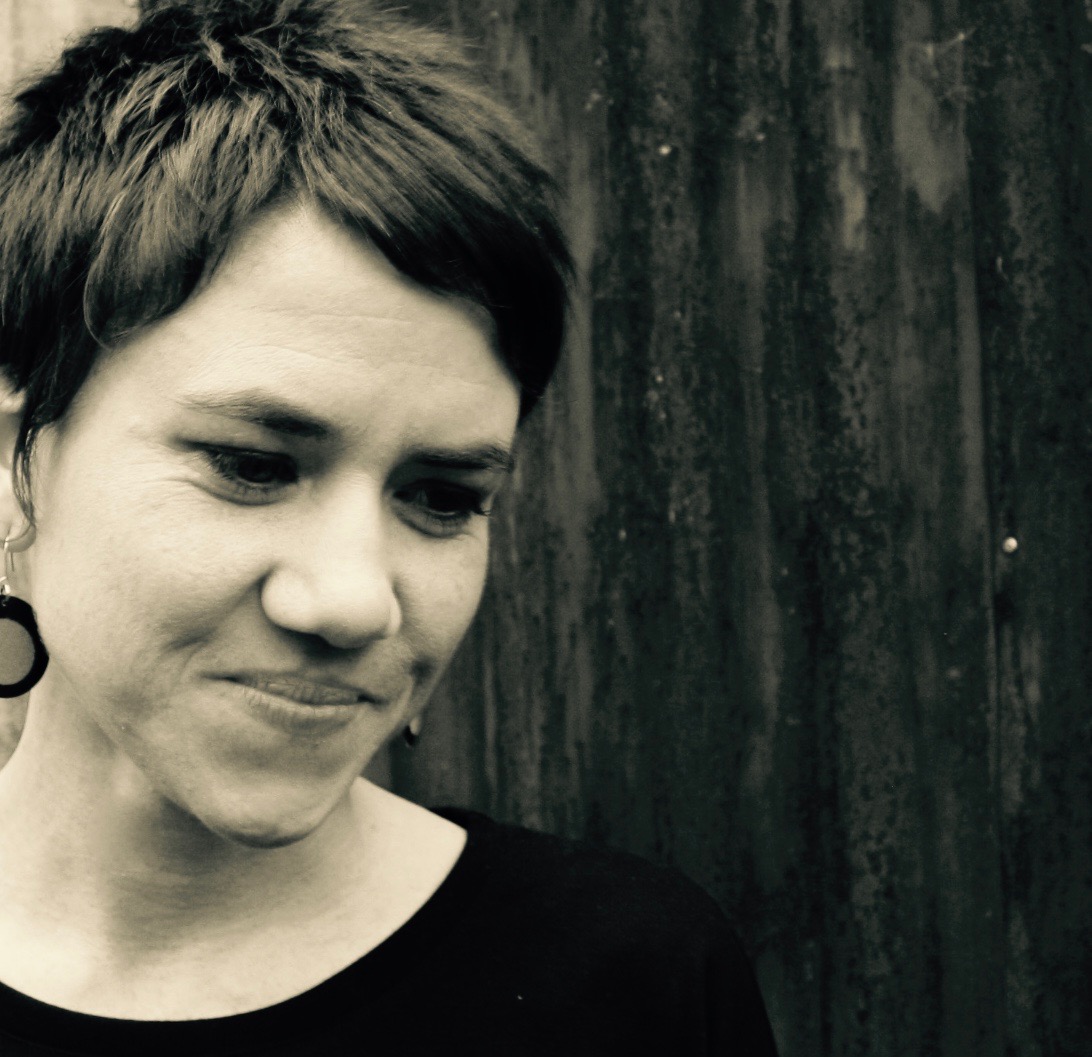
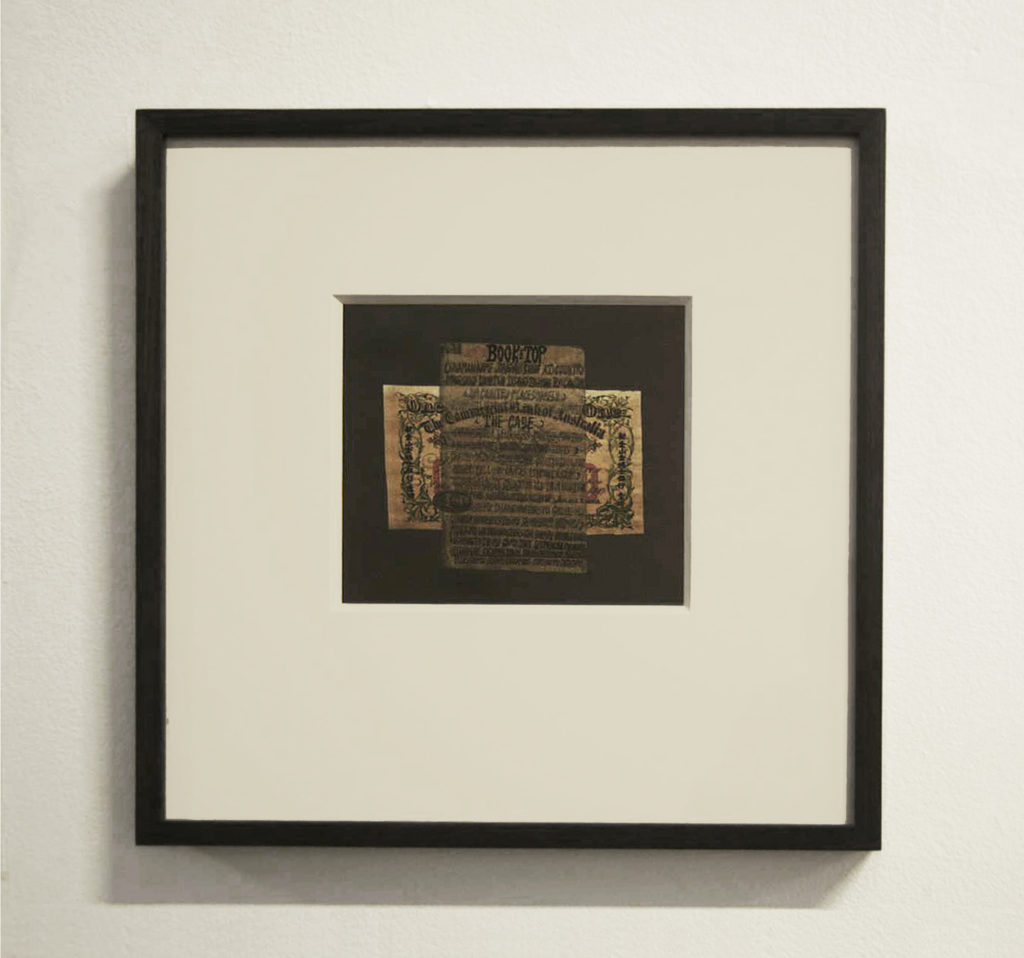
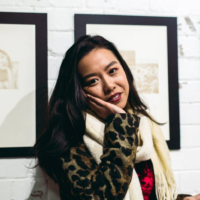 Carielyn Tunion aka ALIENCRY is a multidisciplinary artist & serial story peddler with experience in visual arts, illustration, screen production & creative content production. Her focus is on community empowerment through representation, decolonisation practice, and creative collaboration. Her work has appeared in The Experience Magazine, ISMS-zine, Vertigo, 2TheFront Zine. She has exhibited at Lowbrow Denver Pintastic Exhibition, Colorado, Amber Rose’s Slutwalk, LA. This video was part of the SAD N ASIAN group show in New York, and at a @kaleidopress event in 2017.
Carielyn Tunion aka ALIENCRY is a multidisciplinary artist & serial story peddler with experience in visual arts, illustration, screen production & creative content production. Her focus is on community empowerment through representation, decolonisation practice, and creative collaboration. Her work has appeared in The Experience Magazine, ISMS-zine, Vertigo, 2TheFront Zine. She has exhibited at Lowbrow Denver Pintastic Exhibition, Colorado, Amber Rose’s Slutwalk, LA. This video was part of the SAD N ASIAN group show in New York, and at a @kaleidopress event in 2017.